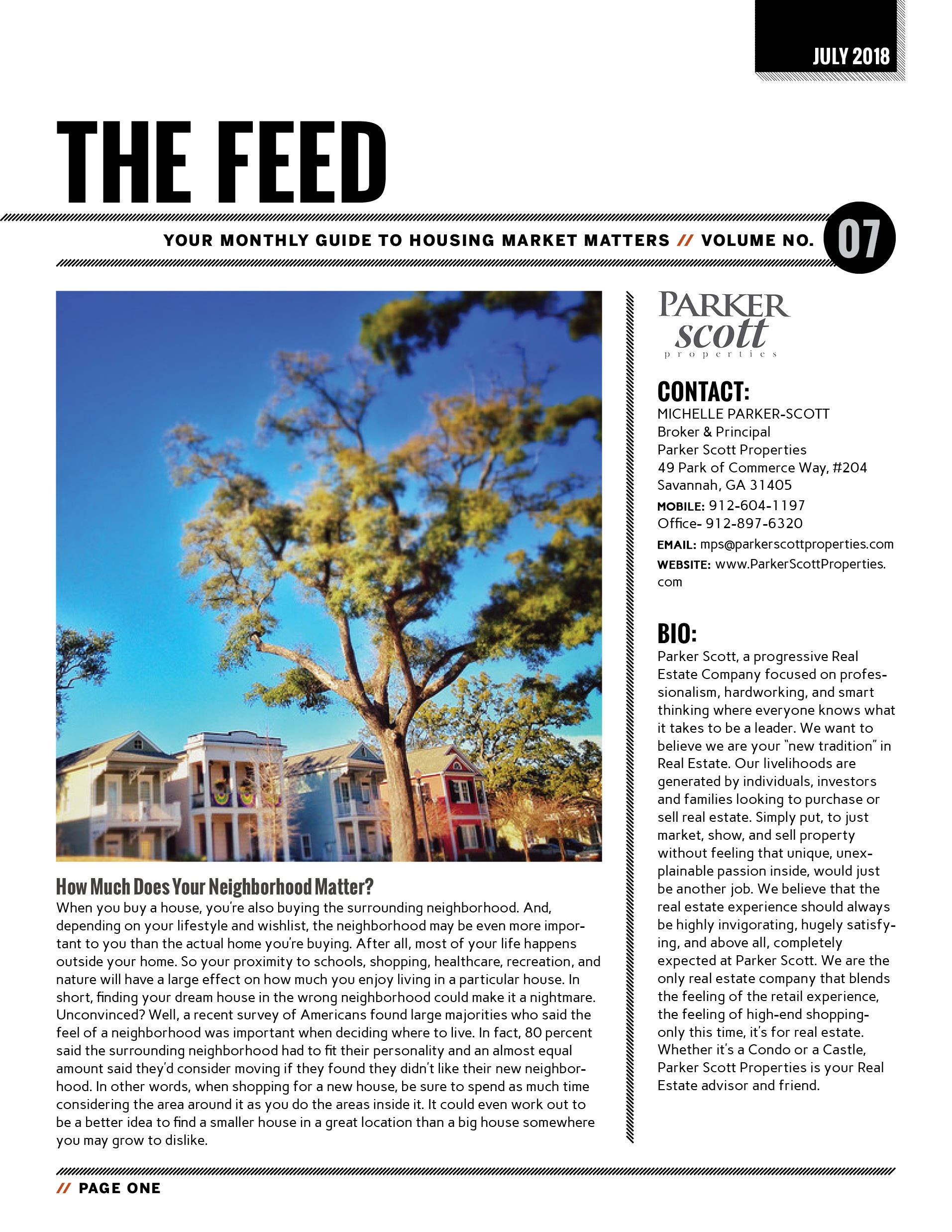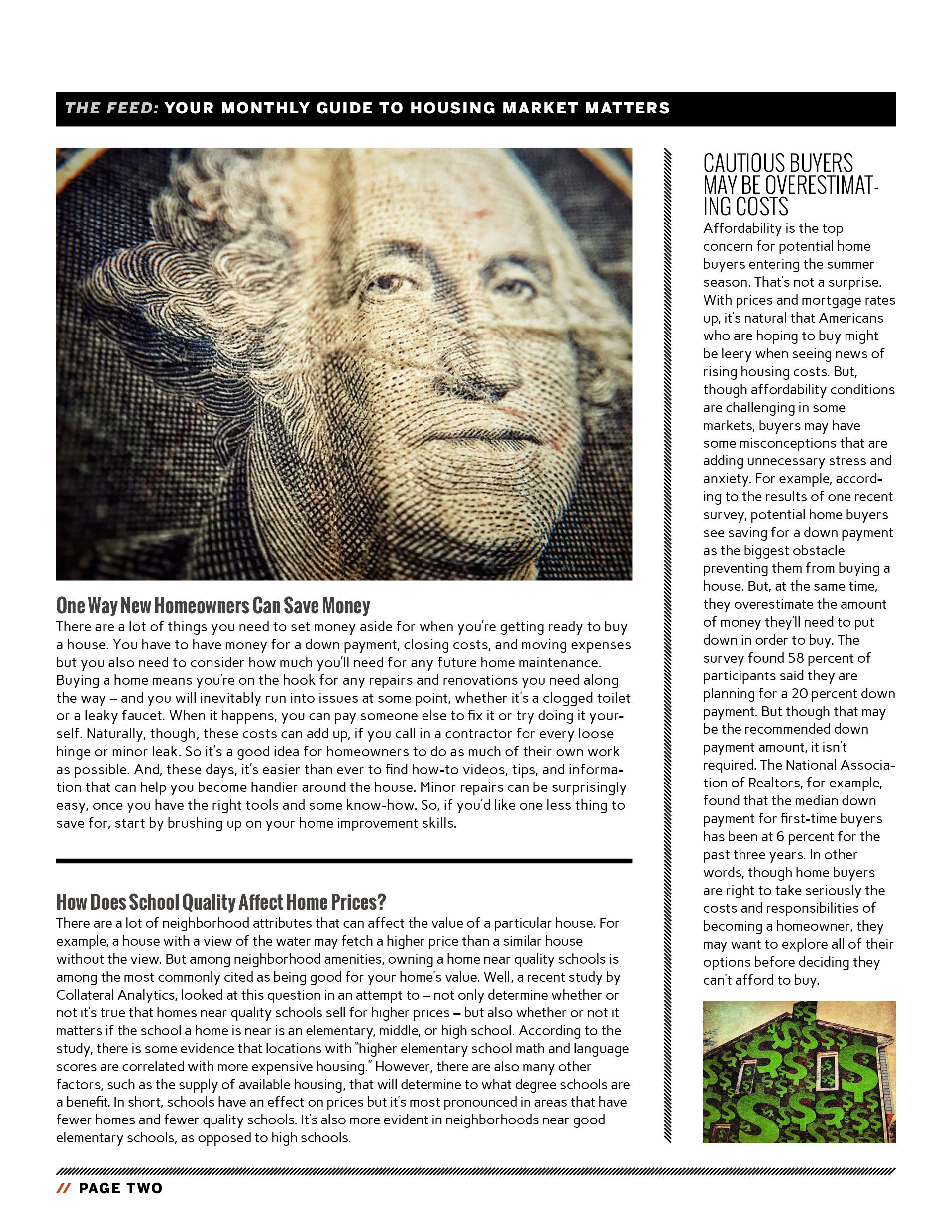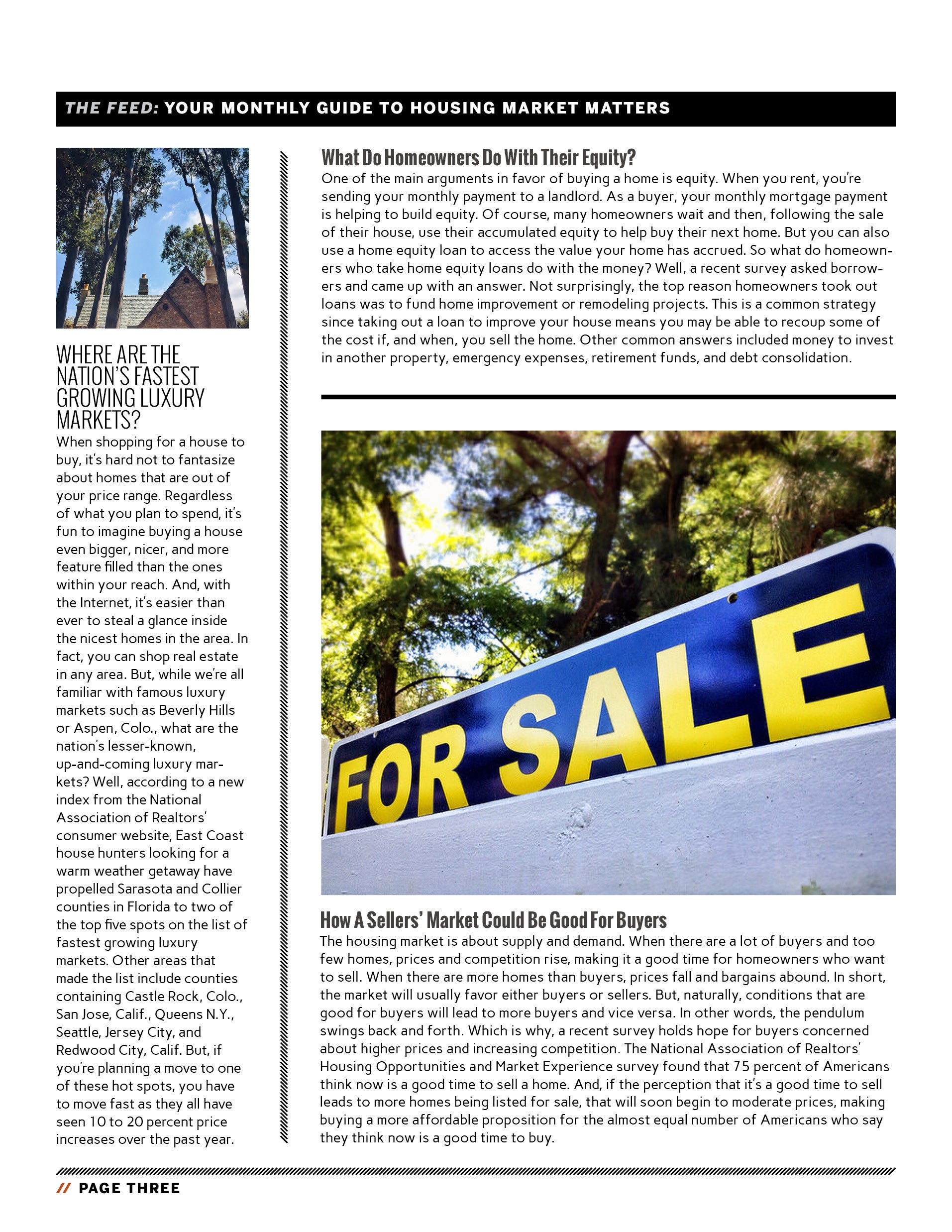In recent years, there’s been a lot of discussion about millennial home buying preferences. Mostly, this is due to the fact that first-time home buyers have historically made up about 40 percent of the home sales in any given year. And, because they account for a large number of the homes sold each year, any fluctuation in those numbers is notable. That’s why Freddie Mac recently took a look at why the homeownership rate among young adults has dropped 8 percent since hitting its peak in 2004. As you might imagine, there are a variety of reasons for this. Among them, affordability, not surprisingly, ranks highest. Concern about being able to afford homeownership is always an issue for younger buyers. But there are many other factors that have played a role in suppressing buyer demand among first-time buyers. Some of the other common reasons named included lower marriage and fertility rates, student-loan debt, borrowing constraints, and a preference for urban living, which tends to be more expensive. In short, young Americans – in addition to affordability challenges – have more debt and are starting families later in life. But, though lifestyle and demographic changes have influenced buying activity, Freddie Mac predicts homeownership rates will rebound, if the economy and wages continue to improve. More here.
Home Buyer Must Haves Mean Compromise
Searching for a home to buy can be frustrating. Mostly because it’s not always easy to find a house in the right neighborhood with every one of the features you dreamed of. If you find the perfect kitchen, the house will have too few bedrooms. Or you’ll find a house with the right number of bedrooms and the kitchen will be too small. In other words, buying a house means compromise. And, in today’s market, buyers are having to make difficult choices. For example, a new analysis from the National Association of Realtors’ consumer website found that for 73 percent of recent buyers school district was an important factor in deciding which house to buy. But, among those buyers, nearly 80 percent said they had to give up other home features in order to find a house in their preferred district. Some of the features these buyers said they gave up included a garage, a large backyard, an updated kitchen, and an outdoor living area. In short, you might not get everything you want in one house. So prioritize your wish list and know what’s most important to you. More here.
Remodeling Index Finds Home Repairs On The Rise
Maintenance is a big part of being a homeowner. Put simply, owning a home means having a never-ending to-do list and, depending on your level of know-how, some of it will require the help of a professional. These jobs can range from major renovations such as putting an addition on your house to basic upkeep and repairs like having ducts cleaned and fixing leaks. Essentially, you are your home’s temporary caretaker and how well you take care of it will affect not only how comfortable and enjoyable your home is to live in but also how much you can ask for it when you sell. These days, it seems Americans are increasingly interested in fixing up their homes. In fact, newly released data from the National Association of Home Builders shows home remodeling contractors are busy right now. So what kind of jobs are most in demand? Well, results show demand is highest for basic maintenance and repairs, while additions and alterations – both major and minor – saw slight declines during the second quarter. In short, Americans are tackling their to-do lists and fixing up their homes. This could be due to improved economic conditions and a stronger job market, though it may also be that current homeowners are tending to their homes in hopes of listing them someday soon. More here.
How Affordability Perceptions Affect The Market
Perception doesn’t always match reality but, when it comes to financial markets, it can make a difference. For example, if you’ve ever invested in the stock market, you know that a company’s stock can rise or fall based on the day’s news, even if the company’s fundamentals and outlook remain the same as the day before. In short, perception matters. And, in today’s housing market, there’s a perception that there are few affordable homes available to prospective buyers. In fact, according to a recent analysis from Fannie Mae, though only 8 percent of homeowners consider their current mortgage unaffordable, 45 percent said that affordable housing is difficult to find in their area. Which provides a snapshot of what is going on in many markets across the country. Homeowners that want to sell may be waiting because they don’t feel they’ll find an affordable house to move into. The flip side of this, however, is that as long as current homeowners aren’t selling their homes, inventory shortages will continue, which is the primary factor behind recent price increases. More here.
Your July Home Checklist
July Newsletter



Homeowners See Big Gains On Home Sales
Home prices have been climbing for the past few years. And while that has presented affordability challenges for buyers in some markets, it’s also produced big gains for homeowners who’ve sold a home recently. Take, for example, new estimates showing that, nationally, the typical home seller, after living somewhere for eight years, made nearly $40,000 on their home sale. That’s good news for homeowners. And, in some markets, the sales gain is even higher. Homeowners in the Dallas-Fort Worth area saw a median sales gain of $56,297 after just 7.4 years and, in San Jose, sellers’ median price gain was nearly $300,000. But while that may be encouraging for anyone who hopes to sell soon, there is a flip side. Because many home sellers hope to use any money they make on their home sale as a down payment for their next home, the amount gained on a sale may not seem as significant, especially if you’re buying a home in the same market and price range. More here.
A Beginner’s Guide to Managing a Remodel
What Do Homeowners Do With Their Equity?
One of the main arguments in favor of buying a home is equity. When you rent, you’re sending your monthly payment to a landlord. As a buyer, your monthly mortgage payment is helping to build equity. Of course, many homeowners wait and then, following the sale of their house, use their accumulated equity to help buy their next home. But you can also use a home equity loan to access the value your home has accrued. So what do homeowners who take home equity loans do with the money? Well, a recent survey asked borrowers and came up with an answer. Not surprisingly, the top reason homeowners took out loans was to fund home improvement or remodeling projects. This is a common strategy since taking out a loan to improve your house means you may be able to recoup some of the cost if, and when, you sell the home. Other common answers included money to invest in another property, emergency expenses, retirement funds, and debt consolidation. More here.
How Much Does Your Neighborhood Matter?
When you buy a house, you’re also buying the surrounding neighborhood. And, depending on your lifestyle and wishlist, the neighborhood may be even more important to you than the actual home you’re buying. After all, most of your life happens outside your home. So your proximity to schools, shopping, healthcare, recreation, and nature will have a large effect on how much you enjoy living in a particular house. In short, finding your dream house in the wrong neighborhood could make it a nightmare. Unconvinced? Well, a recent survey of Americans found large majorities who said the feel of a neighborhood was important when deciding where to live. In fact, 80 percent said the surrounding neighborhood had to fit their personality and an almost equal amount said they’d consider moving if they found they didn’t like their new neighborhood. In other words, when shopping for a new house, be sure to spend as much time considering the area around it as you do the areas inside it. It could even work out to be a better idea to find a smaller house in a great location than a big house somewhere you may grow to dislike. More here.

